Improperly balanced pool water can cause eye or skin irritation, but did you know that not having enough of the right chemicals in your pool could make you sick? Read on to learn how you can keep swimming safely this summer.
Why is there a chlorine shortage?
This is a case of classic economics. The demand for inground swimming pools and other recreational products has dramatically increased throughout the past 15 months, meaning the demand for chlorine tablets (a common pool sanitizer) has also increased. Many homeowners use chlorine tablets to balance their pool water and one of the manufacturing facilities of the nation’s leading producers of tablets burned down last year, decreasing available supply. With so many of your neighbors adding a backyard pool and with fewer tablets being produced, there could be a chlorine shortage this summer threatening to put a wrench in your warm-weather plans.
Why is chlorine important for my pool?
Chlorine is a common sanitizing agent in swimming pools, which means it kills germs, bacteria and viruses so you can safely enjoy hours of backyard fun. A vital component of proper pool care and maintenance, chlorine is key to keeping your friends and family healthy while splashing away the summer Saturdays.
Swimming Pool Chlorine Levels
The CDC identifies the powerful combination of proper chlorine and pH levels as one of the top ways to reduce the spread of Recreational Water Illnesses. 1.0 parts per million (ppm) of chlorine in your fiberglass or vinyl liner pool is the ideal level for swimming.
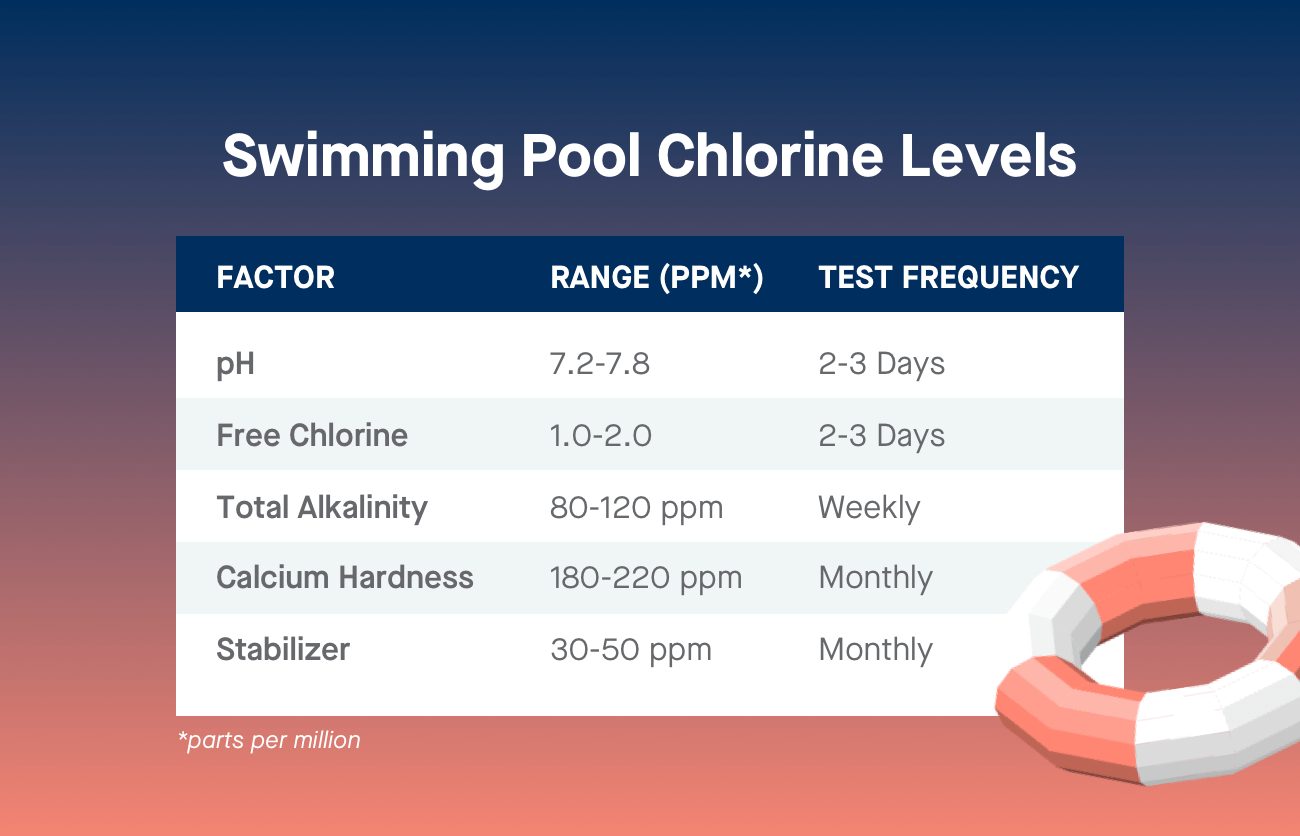
How can I keep swimming during the chlorine shortage?
Looking for ways to make the most of the chlorine that you have? Here are a few tips for current and soon-to-be pool owners on how to keep swimming during the chlorine shortage.
Use a salt chlorine generator
If you’re already a pool owner you know that adding chlorine tablets to your pool water is the most common method to sanitize your swimming pool. Rather than purchase chlorine from a store and transport it home, you might consider making chlorine right where you need it – in your pool. This works by simply adding a device called a salt chlorine generator (SCG).
The SCG works from the simple reaction that naturally occurs when salt water comes in contact with an electrolytic cell. The electrolytic cell is plumbed into the pool circulation between the filter and the pool. Then, a specific amount of sodium chloride (salt) is added to your swimming pool. As the salt water circulates through the system it comes into contact with the electrolytic cell, changing the chemical makeup of the salt water into hypochlorous acid and hydrogen. The hydrogen bubbles out, leaving the hypochlorous acid behind to sanitize the pool. Then, the hypochlorous acid turns back into salt and the process repeats.
“We added a salt chlorine generator to our vinyl liner pool with polymer walls. Our kids and dog love to play in the pool, so while the initial investment was steep it will be worth it to keep everyone in the family occupied all summer.”
– S. Fein-Miller in Kingston, N.Y..
If you choose to add a SCG to your pool, make sure to keep good water chemistry and balance as salt water pools sometimes cause pH levels to increase, potentially leading to scaling or liner wrinkling. Salt chlorine generators can be added to fiberglass and vinyl liner pools with polymer walls at almost any time – a perfect choice for existing and future pool owners.
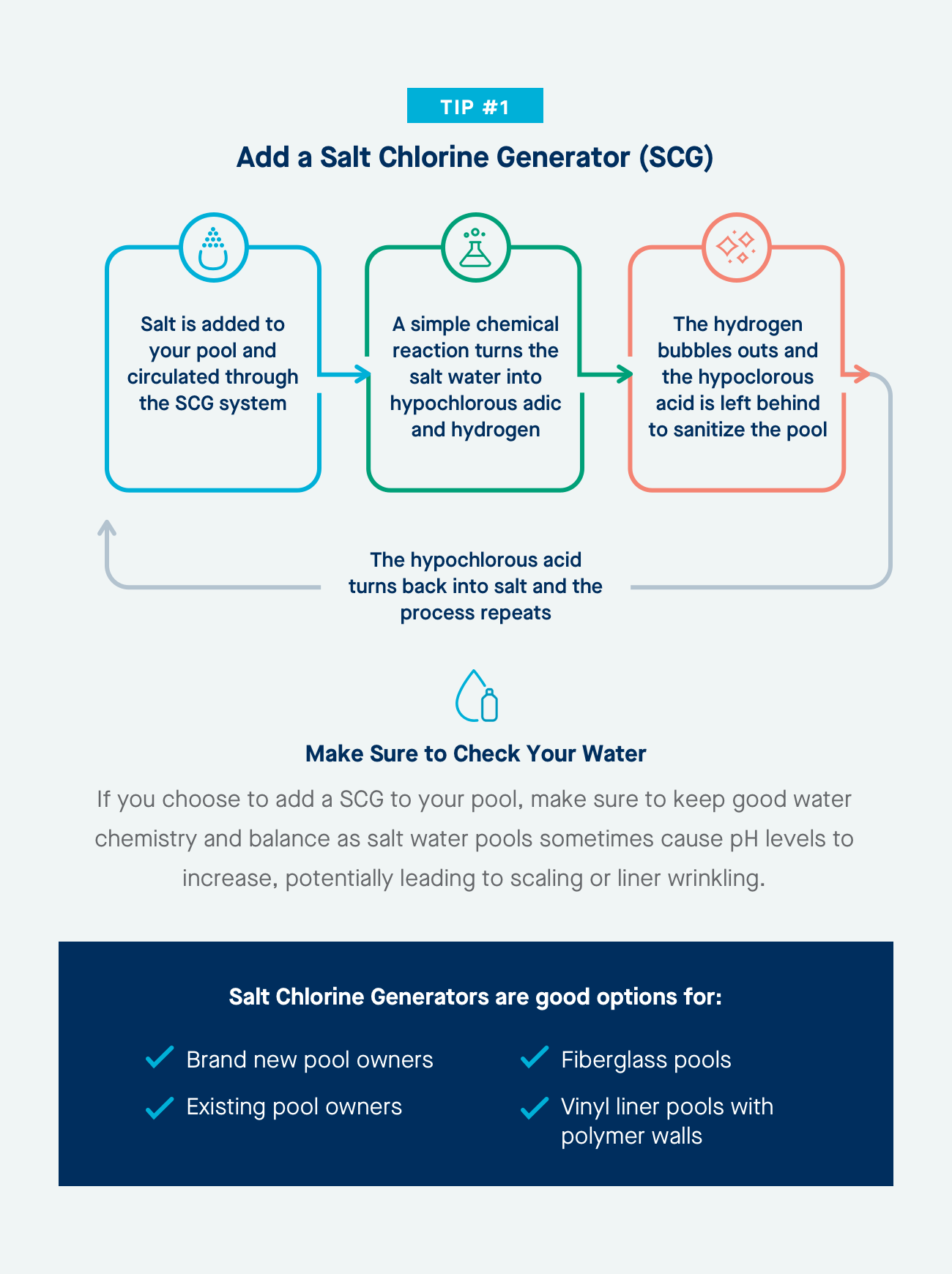
Eliminate evaporation
Another easy way to beat the chlorine shortage is to maximize the chemicals you have by keeping your pool covered when it’s not in use.
Regularly covering your pool with an automatic safety cover can reduce chemical use by up to 70%. Autocovers also can help reduce evaporation by 90%, meaning more sanitized water stays in your pool.
Your pool’s chlorine needs could be further reduced when using a salt chlorine generator and an autocover together as it’s a good idea to turn down your chlorinator on a frequently covered pool to prevent it from becoming hyper chlorinated. This adjustment could also help save on the cost of operating the chlorinator and possibly extend the life of the electrolytic cell and generator as a whole.
Automatic safety covers can be added to existing pools of different shapes and sizes at any time and many pools even come autocover ready. Contact a local builder in your area to see how to add an autocover to your pool project.
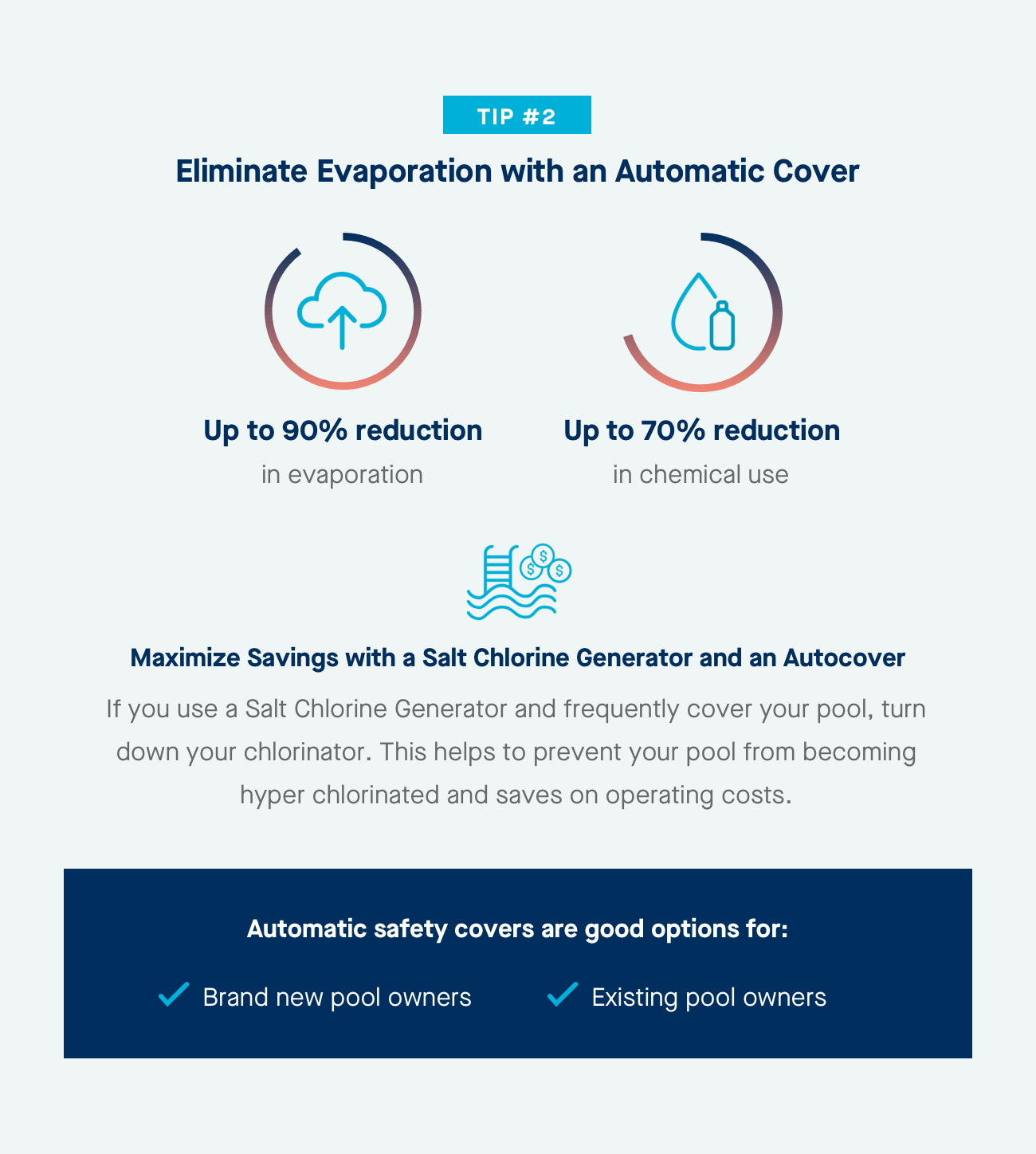
Choose a fiberglass pool
If you’re considering adding an inground pool to your backyard, choose a pool that requires minimal maintenance. Fiberglass pools are famous for being relatively maintenance-free. Not only are fiberglass pools engineered for fade, stain and scratch resistance, they’re finished with a gel coat that makes it very difficult for waterborne organics to live on or adhere to the finish. Compared to concrete pools, fiberglass pools use less chemicals, meaning you’ll spend less time searching for supplies and more time swimming.
“Basically, a concrete pool that is not fully tiled requires a thorough knowledge of water chemistry on a daily basis. Based on data accumulated over several years at Concord Pools, a gunite or concrete pool will require approximately 40 to 60% more chemicals to operate than vinyl liner or fiberglass”
– [email protected], founder of Concord Pools
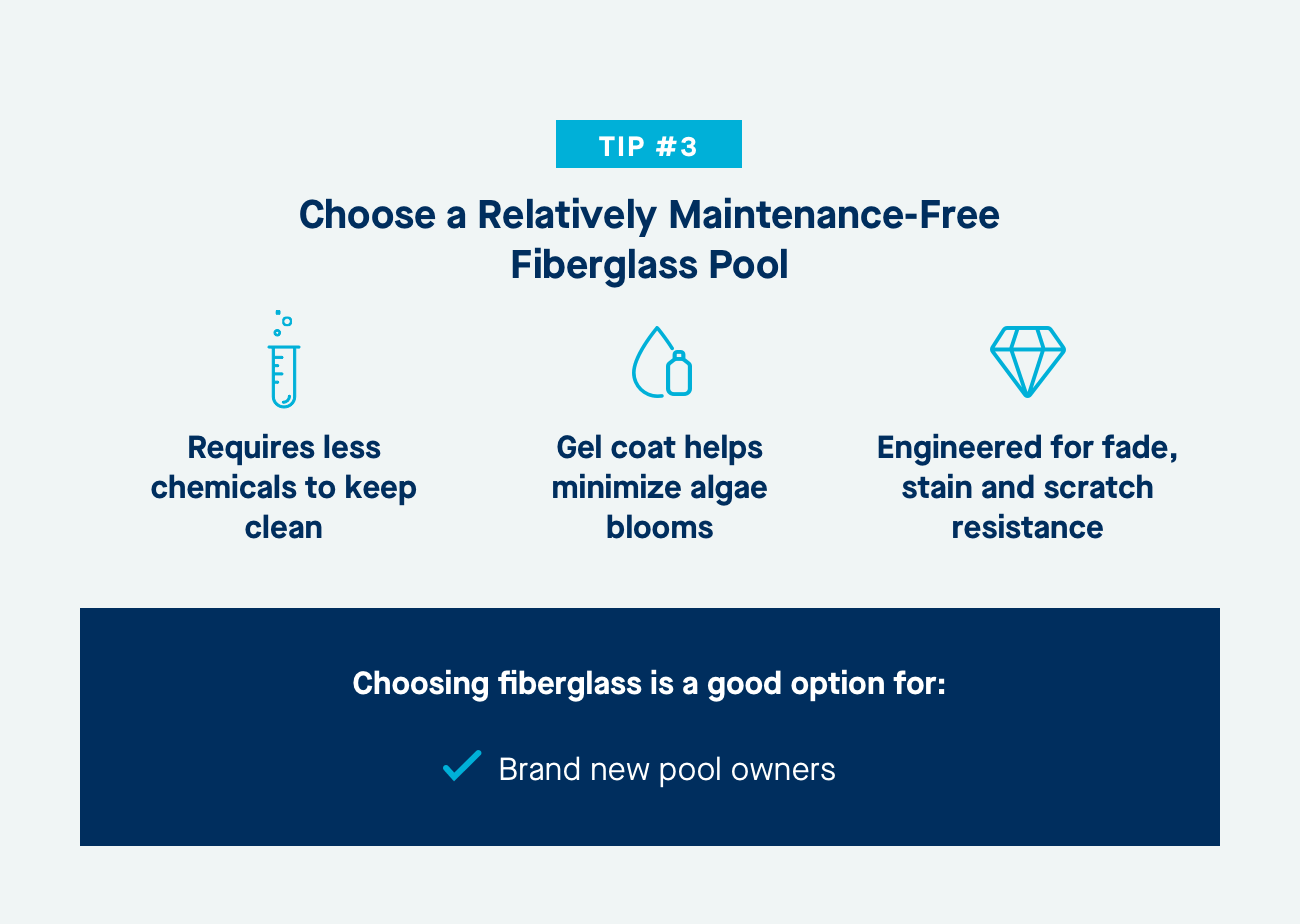
Hopefully, these tips will keep you swimming safely throughout the dog days of summer. There are several methods to keeping your pool sanitized, including ways to sanitize your pool without chlorine. If you ever have a question about whether your pool water is balanced you can always contact a Latham pool dealer.

This information is a summary. Latham pool owners should consult your use and care manual for more detailed information regarding the safe and proper operation of your pool. Future pool owners should contact an authorized Latham Independent Builder for more information.

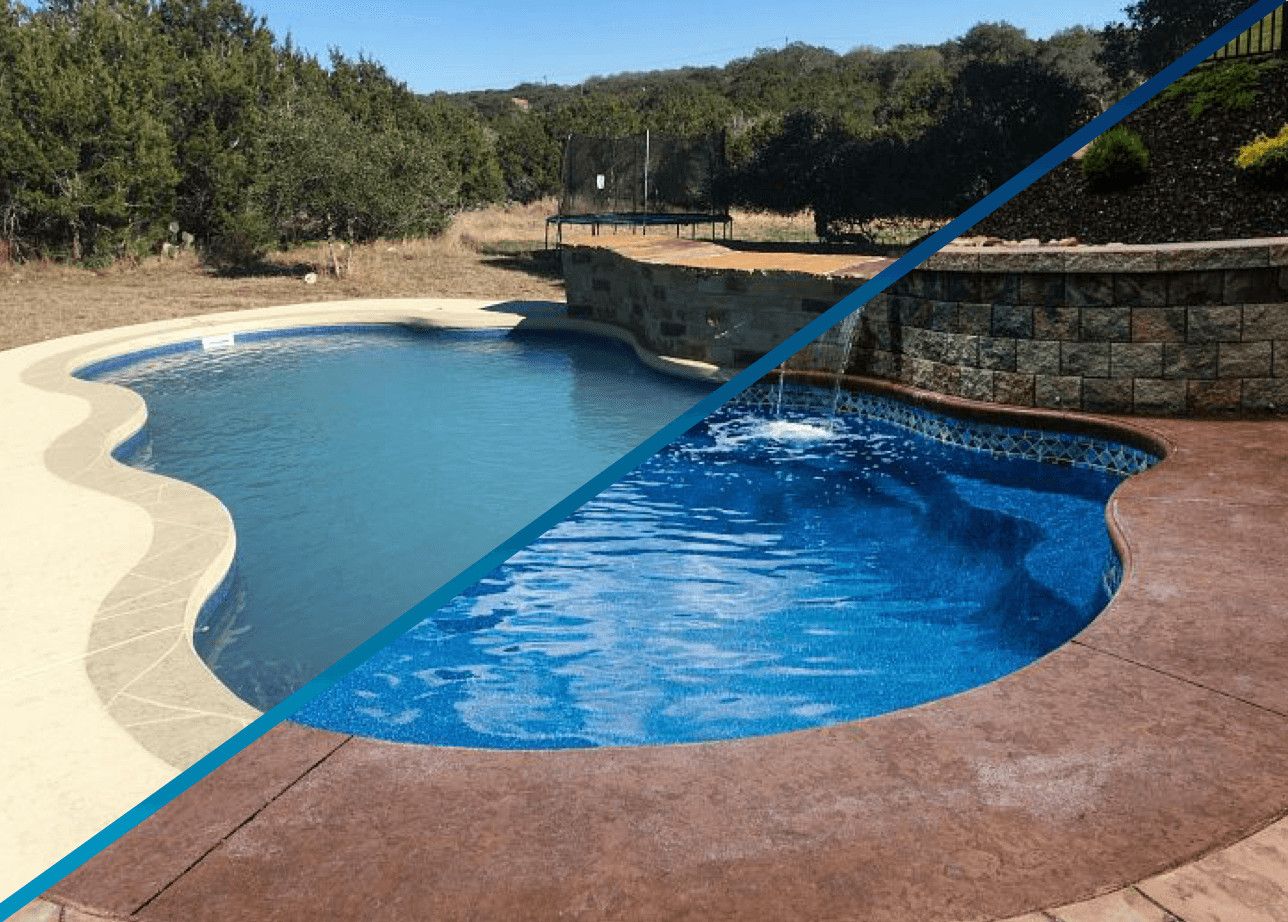

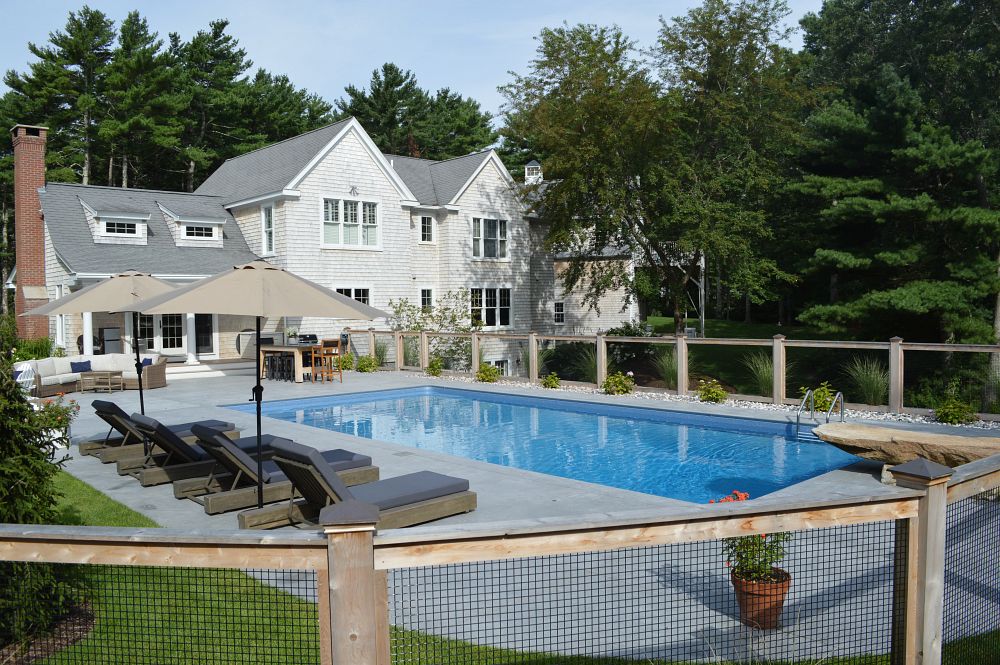
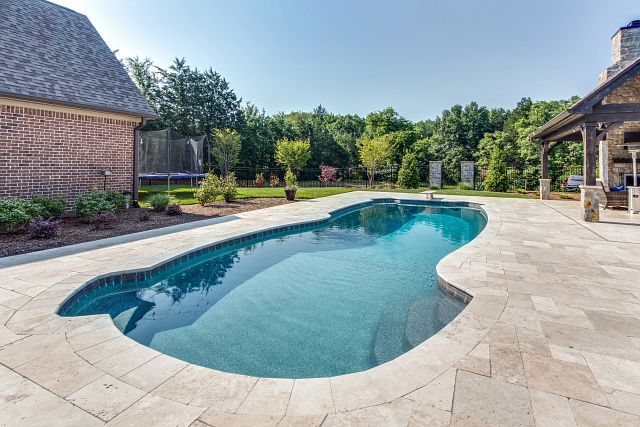
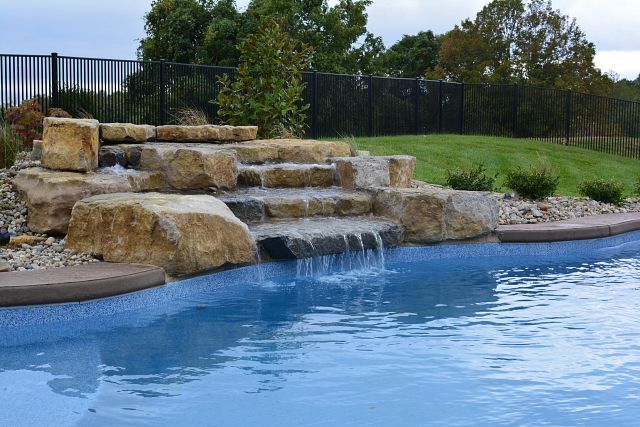
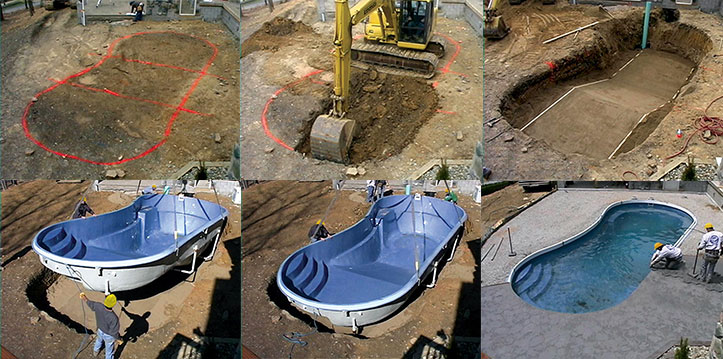
Join the discussion